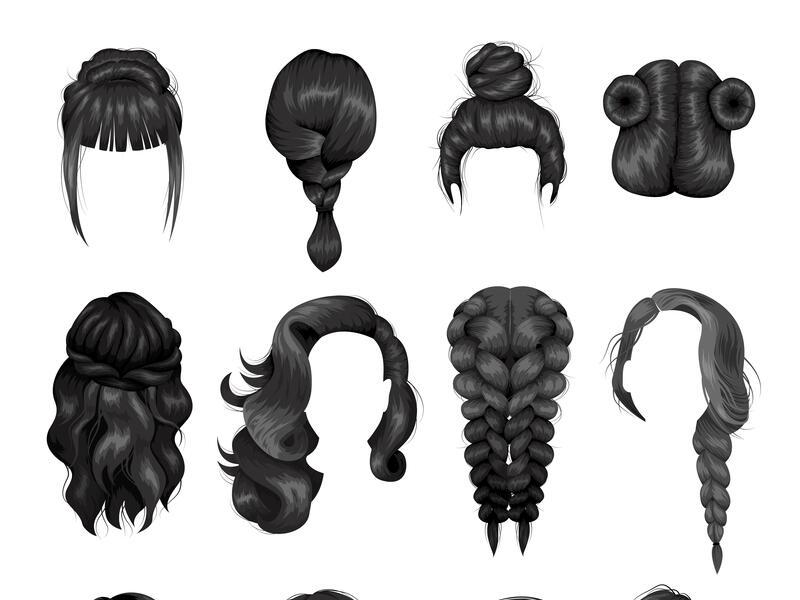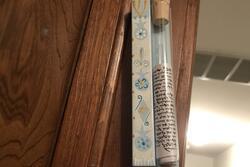My Relationship with My Mom and My Hair: How They Both Have Grown
Tears cascaded down my face as I cried out in pain. My mother was wrestling with the knots in my hair, my head violently thrashing back with each tug at a tangle that just wouldn’t budge. “Enough!” I screamed. But she kept going.
“Ma’arte ka lang,” she exclaimed, telling me in her native tongue of Tagalog that I was being too sensitive and that it was my American father’s fault for spoiling me this way. She proceeded to lecture me on how she was not only was brushing her own hair at the age of eight, but was also cooking for and feeding her five other siblings and six cousins.
That morning, I entered Longfellow Elementary school sniffling, my eyes red. Although my throat hurt from screaming, at least I got to skip my first few lessons to sit in the guidance counselor’s office to complain about my mom and her hair brushing ways.
The following year, my mom and I discovered the wonderful invention of Johnson’s “No More Tangles” spray, in the strawberry scent. Although the tugging didn’t cease, the spray helped prevent the morning fight with my mom and my hair. When I went over to my neighbor’s house to carpool for school, he’d tell me my hair smelled nice, so I kept using it.
Two years later, my parents returned from a trip to Australia with a gift: a hairbrush with wild boar hair bristles. At first, I was skeptical; but when my mom started brushing my hair, it was a miracle. There was no pain whatsoever. Our mornings for the next two years remained peaceful.
Then, the summer before sixth grade, my dad, my little sister, and I packed up our bags and moved halfway across the world to Singapore. We left my mom behind; she was staying in Iowa to keep her job at the hospital. With time, I’d learn to appreciate the move, but I spent the next four years seeing my mother sporadically, for only weeks at a time. We would return home over winter break, and she would visit for spring break. We’d spend the whole summer with her, but it wasn’t until we moved back to Iowa, when I was a sophomore in high school, that I would finally be living with my mother again.
While living in Singapore, I cut my waist length, ombre hair up to my shoulders. I dyed my hair before moving to Singapore, and away from my mom. I learned later it was a guilt gift from my dad for making me move across the globe. In Singapore, I dyed it again. After the first cut, I cut it again, and again. I was a moody, young teen who wanted change.
Finally, before starting my sophomore year back in Iowa, I cut my hair right below my ears. My mom hated my short hair and wanted me to grow it out. But it wasn’t just my hair that had changed; my hair’s length was shorter, and so was the distance between me and my mom, and not just physically.
Now, my mom compliments my shiny, un-dyed, black hair, telling me it’s the ideal Filipino hair like what we would see in Pantene shampoo commercials on our trips to visit family in Manila. I take her compliments with pride. I am no longer the moody teen with short dyed hair. She tells me these compliments as I pull out gray hairs for her with tweezers, or french braid her hair before her shift at the hospital.
Now, rather than running out the door and away from her and a hairbrush, I kiss her on the cheek goodbye as she leaves to care for COVID-19 patients on 12 hour shifts, while the rest of my family sleeps. After being away from her for so long, we’ve found there isn’t much to fight about anymore. I’d spent so much time away from her, and I’d matured. I learned how to take care of my hair by myself. For so many years my mother and I fought constantly. Now, I think back on all those mornings spent sitting on a stool in the kitchen before school, pouting as my mother detangled my thick hair, and I’m glad she wrestled those knots for me. Because she toughened my scalp and she toughened me.
As a high school activist, I often find myself in debates with others. As a feminist, guys try to degrade me, attempt to invalidate me and my argument by tearing me down. They attack me, try to make me cry, and try to make me look weak. But I don’t bat an eye when I receive death threats on Facebook for giving a speech on climate activism. I don’t tremble when students at my school tear up the photos I've taken of presidential candidates for my high school newspaper. They think they can break me. Little do they know that I had a Filipino woman brushing my tangles for half of my life, so what they say can’t touch me: this head is impenetrable.
This piece was written as part of JWA’s Rising Voices Fellowship.






